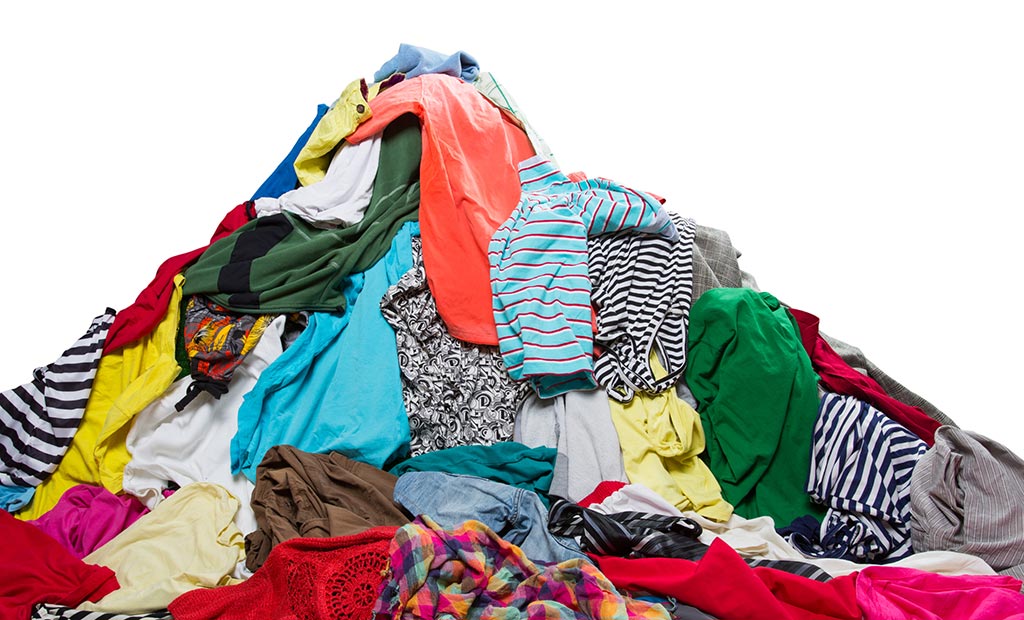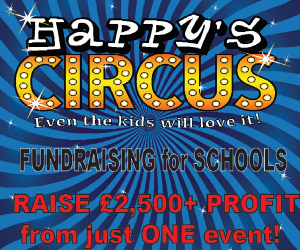We have a problem – there’s too much stuff in the world. But why not turn this into a positive? Take a look at what you can reuse or recycle. Not only will you save money, but you can stop unwanted items and waste from going to landfill, give people a good excuse for a clear-out and raise awareness of environmental issues. Here are some ideas to get you started.
Reuse
When it comes to sustainability, the focus is often on recycling. But it’s even better to use something for a second or third time. Reusing doesn’t just mean using the item as it was originally intended to be used (such as in a bric-a-brac sale); it can also mean giving it a new lease of life by turning it into something completely different.
Ecobricks: An Ecobrick is a single-use plastic bottle that has been packed with non-recyclable plastic to make a sturdy building material. The qualities that make non-recyclable plastic so damaging to the environment is what gives Ecobricks their longevity when used to build structures, furniture and paths. You need considerable manpower to make enough Ecobricks to build something, which makes it ideal for a school environment. Challenge pupils to create Ecobricks at home, raising awareness of single-use plastic with both pupils and parents. Find out more, including building ideas, at ecobricks.org.
TIP: Plastic bottles can also be used independently to build structures such as greenhouses, but be aware that you will normally need to collect many bottles of the same size. Don’t encourage single plastic use to reach your goal.
Crafty fair activities: Hands-on activities are fantastic at fairs, giving visitors more to do and often meaning they stay for longer while they wait for items to dry. See what you can source and build your activities around it. Collect unwanted goods from parents and local businesses, including fabric off-cuts, wastepaper and written-off products – many shops will throw away items they no longer have space for, so ask if they have anything you can save from landfill. Make collecting a competition to see which class can gather the most recycling (make it clear that you’ll only accept cleaned items). If you have any crafty parents, challenge them to think of as many ways as they can to reuse what you’ve collected. Test-drive your ideas to make sure they work and look at Pinterest for inspiration. If you’re providing extra decorating materials, remember to make sure these are also eco-friendly – biodegradable glitter, for example.
TIP: This could also be an event in itself held after school, which would work especially well in the run-up to Mother’s or Father’s Day.
Buengo: This is a buying and selling app with a difference. Sellers post items for sale, pick the cause they’d like to support and when the item is sold, all profit goes to that cause. Using Buengo means you can hold a virtual sale where parents don’t have to commit time to a specific event – they can sell and buy the items themselves with the proceeds going to the PTA. Visit buengo.com to find out more.
Bric-a-brac sale: Hold a bric-a-brac sale either as an inside table-top or outside car boot event, depending on which is more suitable for your school. Hold the sale on a Saturday and give parents plenty of notice so they can sort through their lofts, wardrobes and cupboards. Ask for donations to be brought to school in bags on a Friday afternoon, and allocate a sub-committee to sort the items into books, toys and games, bric-a-brac and different types of clothing. Either price goods or give buyers some discretion with recommended donations.
Swishing evening: Prevent clothes from going to landfill with a clothes-swapping evening. Guests bring in their clothes in exchange for a voucher, which they can then use to buy back the same number of items as they brought in. All items should be freshly laundered, ironed and in good repair. Charge a ‘per person’ admission fee to raise funds, and invite external stallholders to attend, selling beauty products, gifts or accessories.
Used book swap: Ask people to bring in their old books to swap with others, making money through an admission fee and refreshments. Sort the books into age groups and get children and adults involved. You could invite them to dress up and serve themed goodies to make it a more magical experience.
Second-hand uniform: Giving school uniform another turn means families save money, and items that would otherwise go to landfill are reused. If you have a handy parent who’s willing to take on the second-hand sale, you can make it about even more than just receiving and reselling items. Damaged clothes can be upcycled – for example, you could make hair scrunchies from stained or damaged summer dresses, or reuse the buttons from an unrepairable cardigan.
Recycle
Recycling schemes are a fantastic way to raise money without the time and effort of holding an event. For volunteers who want to help but are short of time, running one or two recycling collections a year can be their contribution. Encourage local businesses to support your scheme to maximise your profits. Potential fundraisers include:
Textiles: Clothes, curtains, bedding, shoes and soft toys can all be recycled through textile collection companies such as thelittlerecyclers.co.uk, who pay a fixed price per kilo of clothing collected.
Printer cartridges: Collect printer cartridges from your school and local businesses by sending out letters and providing collection boxes. Companies such as emptiesplease.com will pay around £1 for every cartridge they can recycle.
CDs/DVDs/games: Websites such as musicmagpie.co.uk pay for old media. Enter the barcodes of CDs, DVDs and games (or scan through its handy app) to see how much they are worth and then send them off via Freepost. As long as the original sleeve is intact, with a visible barcode on the back, it can be recycled (but do make it clear to parents that promotional DVDs and CDs, such as those that come free with newspapers, don’t count).
TerraCycle: This international programme allows you to recycle the ‘non-recyclable’, including coffee capsules, pens and crisp packets, and earn funds for your school while you do it. TerraCycle offers free recycling programmes funded by brands, manufacturers and retailers around the world to help you collect and recycle your hard-to-recycle waste.
Choose the programmes you’d like to join; start collecting in school; download free shipping labels and send in your waste to be recycled. Many of TerraCycle’s programmes offer TerraCycle points, which are redeemable for 1p per point for your school. Points vary by programme, and there is often a minimum weight, which is where promoting the scheme to your school and the wider community will help. It’s not the biggest earner, but it does reduce the amount of waste going to landfill and incinerators and raise environmental awareness while topping up school funds. Visit terracycle.com/en-GB to find out more and enrol your school as an official collection point. TerraCycle also has a range of free resources, including posters, guides and upcycling inspiration.
Check out our supplier directory for a list of recycling companies near you.
‘We upcycle empty glass bottles’
‘One of our PTA committee members had the wonderful idea of upcycling empty glass bottles into bottle lights. With so many gins in beautiful bottles out there, it seemed a fantastic opportunity to make something useful and attractive from the empties. Fancy prosecco bottles work really well, too. LED string lights can be purchased online, complete with a battery pack in the ‘cork’, and are easy to pop into a clean, empty bottle. The batteries can be replaced so the lights have a long shelf life. Initially, we asked parents to donate their empties, but the bottle lights proved so popular, we struggled to obtain enough to keep up with demand. One of our members therefore started forging relationships with local pubs and bars, who we found were more than happy to donate their empty bottles. We sell the bottle lights for £3 each.’
Sarah Everson, PTA secretary, Halsford Park Primary School, East Grinstead, West Sussex (415 pupils)








